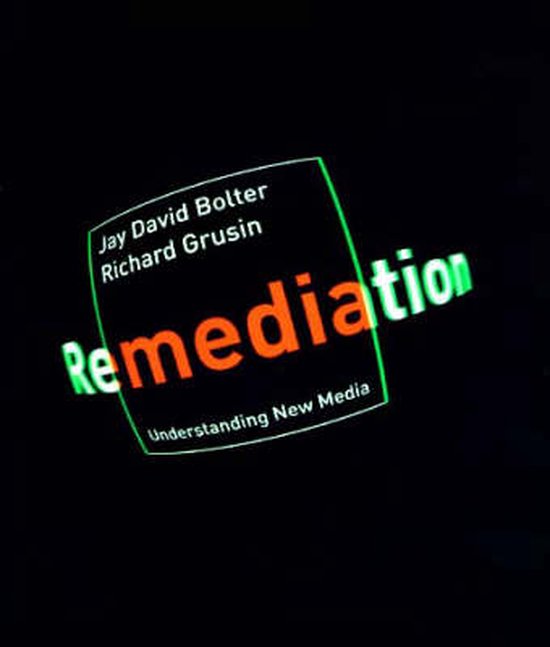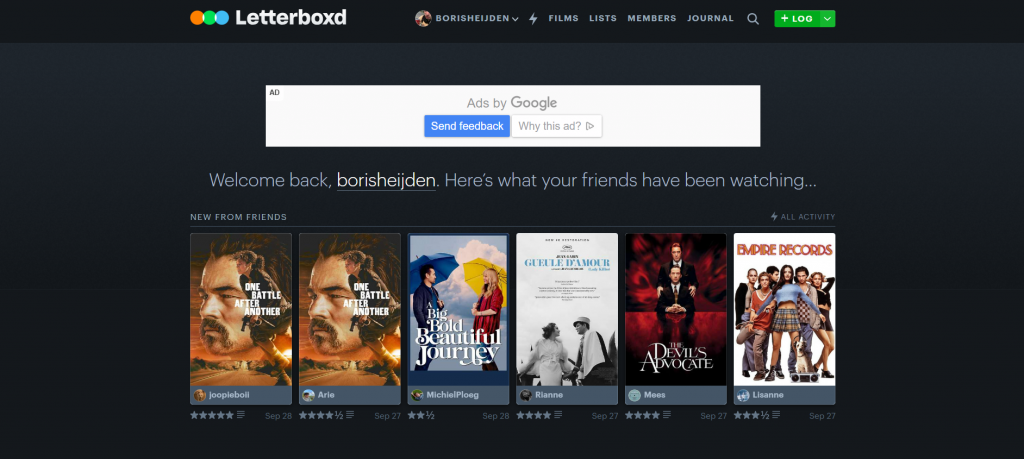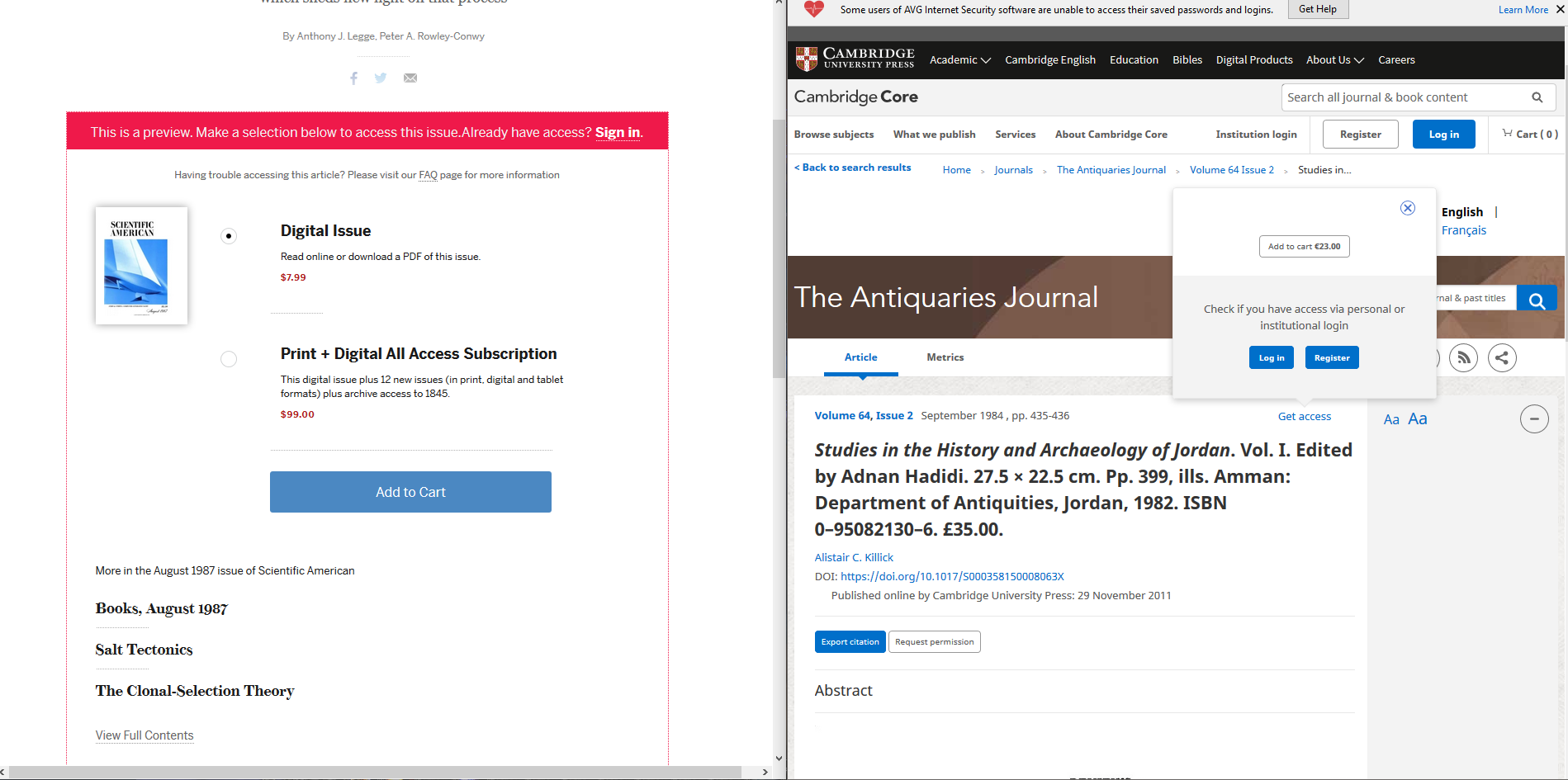I watch a lot of films, not only because I study film, but also because I love film. After watching a film I, and most people, have a certain feeling or an opinion about that film. Sharing this feeling or opinion isn’t always necessary, but if you want to share it with friends and other people in the film community, there is one platform that is most famous for sharing these things; Letterboxd. You can not only share your reviews on films, but also rate the films, get information on films, read other reviews, read the little pretext or watch the trailer.
To give a short description of Letterboxd I want to let the site speak for itself:
“We’ve been described as “like GoodReads for movies”.
Or in other words:
“Use it as a diary to record and share your opinion about films as you watch them, or just to keep track of films you’ve seen in the past. Showcase your favourites on your profile page. Rate, review and tag films as you add them. Find and follow your friends to see what they’re enjoying. Keep a watchlist of films you’d like to see, and create lists/collections on any given topic.” (Letterboxd) .

For me, the knowledge on films is on this website. It has almost every film and makes me more engaged while watching a film. If I want to know more about a film, I directly go to Letterboxd. A film I don’t know about? Letterboxd. Searching for an opinion? Letterboxd. Rating a movie I just watched? Letterboxd. For me it’s something fundamental in watching films, because I can keep track on what I have seen and what i have not seen. I otherwise forget, but that’s maybe also because the film didn’t bother me that much (those are the films with a two star or lower most of the time). The question I want to ask in this blog is; how can we, through Letterboxd, stay critical of digital technology and media?
Remediation and Letterboxd
To answer this question I want to use the concept Remediation used by Bolter and Grusin.
“Our culture wants both to multiply its media and to erase all traces of mediation: ideally, it wants to erase its media in the very act of multiplying them.”(5)
This is an early quote in their book Remediation: Understanding New Media that describes Remediation. and to get even further into Remediation, there are two impulses in how media remediate one another that are central to answering my question, those are immediacy and hypermediacy:
“If the logic of immediacy leads one either to erase or to render automatic the act of representation, The logic of hypermediacy acknowledges multiple acts of representation and makes them visible. Where immediacy suggests a unified visual space, contemporary hypermediacy offers a heterogeneous space, in which representation is conceived of not as a window on to the world, but rather as “windowed” itself-with windows that open on to other representations or other media.” (Bolter and Grusin, 33)

Firstly there is immediacy and Letterboxd. This is the interface that stands out the moment you get on the site: the posters, trailers and the clean overview of the site. You directly get represented with films when you for example open the app or site. Also the fact that you can log a film in a diary and get them together in a unified space to look at is an example of immediacy.
And then there is hypermediacy. This is the layering of the site that makes you aware that you are not only experiencing the films and the site, but also interacting with the films and site itself. It’s a single page that offers you multiples of information and representation you can click on. These multiples you can also see with the social engagement with friends. This social engagement frames what films you see. Your friends log films and makes you interact and click on the films they watched. But not only the films of friends are shown, also the popular films and reviews of the week are shown. This makes you interact with more than just the films you watch. If you want, you could click on a film and click further on the profile of friends who liked this film, and while on their profile you could watch what they liked and didn’t like, and then again click on a film you didn’t see yet, but they did. It’s almost endless or as Bolter and Grusin called it “‘’windowed” itself-with windows”. Beside all the features on the side, your friends can also see what you have seen. This opens the possibility for conversation about films outside the site. So Letterboxd is more than just for sharing your films, its also for talking about films.
Critical on Letterboxd
But why is it that we should stay critical when we see a site like Letterboxd when considering technology and media? Letterboxd offers a polished site and app for watching films, but you must consider that what you watch and what you read on the site is framed more than you think. By the friends you have and what they watch, by what is popular, by the reviews you like and don’t like. Behind the immersion and unified space of immediacy, and the interaction, social engagement and talking about films of hypermediacy there is more going on than what you think is going on. The things you click on can shape what you think. For example reading a review that inspires you can make you think in a different way about films or life. This makes you click on other films you maybe wouldn’t have in the past. It’s the way we are shaped by these kind of technology and media we should be aware of and maybe think twice when just clicking through Letterboxd, and stay critical over the thoughts and opinions we ourself have.

logging, rating and reviewing Letterboxd
I dont want to end this blogpost about my favourite app and site on a critical note, so i want to give a little advice to the people who don’t use Letterboxd and watch films often, use it! It’s a fun way to experience the films on a whole different level, even if you only rate the films. You begin to think more about the films you watch and have different perspectives on them. And of course you should stay critical on what you consume, where you click on and what you read, but this can’t take away the fun you can also have by being on the site and enjoy films like never before. I rate Letterboxd a 5 out of 5 stars.
Bibliography
Bolter, Jay Davind, and Richard Grusin. Remediation: Understanding New Media. MIT Press, 1999.



Recent Comments